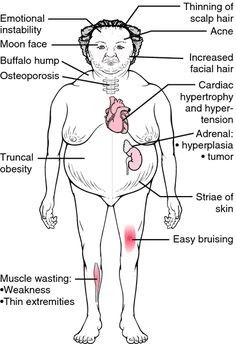As a nurse caring for a school-age child, the nurse may anticipate which primary stressor/fear?
Loss of privacy and control.
Separation anxiety
Fear of pain/bodily injury.
Stranger anxiety.
The Correct Answer is C
School-age children typically have a growing awareness of their bodies and an understanding of potential harm or pain. They may fear procedures or treatments that involve physical discomfort, such as injections, blood draws, or invasive procedures. The fear of experiencing pain or bodily injury can cause anxiety and distress in school-age children.
It is important for the nurse to acknowledge and address the child's fear of pain or bodily injury by providing age-appropriate explanations, offering reassurance, and implementing strategies to minimize discomfort. This may involve using distraction techniques, providing emotional support, and ensuring proper pain management during procedures.
While loss of privacy and control, separation anxiety, and stranger anxiety can also be stressors for school-age children, the fear of pain or bodily injury is often a significant concern that may require specific attention and interventions from the nurse.
Nursing Test Bank
Naxlex Comprehensive Predictor Exams
Related Questions
Correct Answer is C
Explanation
Prednisone is a corticosteroid medication that can increase blood glucose levels by promoting gluconeogenesis (the production of glucose from non-carbohydrate sources) and reducing glucose utilization in the body. This can lead to elevated blood sugar levels, especially in individuals with diabetes. The client's history of urinary tract infection and the use of Prednisone suggest that the infection might have triggered the development of DKA.
It's important to note that DKA can occur even when a person is taking insulin as prescribed and following their diet carefully if other factors contribute to the development of DKA, such as an underlying infection or the use of certain medications like Prednisone. The nurse should further assess the client's condition and notify the healthcare provider to initiate appropriate management for DKA.
Correct Answer is B
Explanation
Prednisone is a corticosteroid medication that can cause a range of side effects, including fluid retention, electrolyte imbalance, and increased blood pressure. A blood pressure reading of 148/94 mm Hg indicates hypertension, which may be related to the use of prednisone. It is essential to report this finding to the health care provider as it may require further evaluation and management, such as adjusting the medication dosage or initiating additional treatments to control blood pressure. The other information provided, such as stopping the medication, ankle edema, and not taking prescribed vitamin D, is relevant but does not pose an immediate threat to the patient's health compared to uncontrolled hypertension.

Whether you are a student looking to ace your exams or a practicing nurse seeking to enhance your expertise , our nursing education contents will empower you with the confidence and competence to make a difference in the lives of patients and become a respected leader in the healthcare field.
Visit Naxlex, invest in your future and unlock endless possibilities with our unparalleled nursing education contents today
Report Wrong Answer on the Current Question
Do you disagree with the answer? If yes, what is your expected answer? Explain.
Kindly be descriptive with the issue you are facing.
